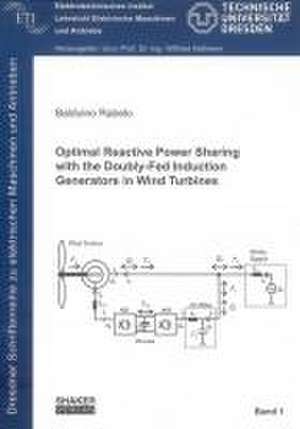Optimal Reactive Power Sharing with the Doubly-Fed Induction Generators in Wind Turbines
Autor Balduino Rabeloen Limba Engleză Paperback – 31 ian 2010
Preț: 289.99 lei
Nou
Puncte Express: 435
Preț estimativ în valută:
55.49€ • 60.46$ • 46.76£
55.49€ • 60.46$ • 46.76£
Carte indisponibilă temporar
Doresc să fiu notificat când acest titlu va fi disponibil:
Se trimite...
Preluare comenzi: 021 569.72.76
Specificații
ISBN-13: 9783832288006
ISBN-10: 3832288007
Pagini: 230
Dimensiuni: 149 x 210 x 17 mm
Greutate: 0.31 kg
Editura: Shaker Verlag
ISBN-10: 3832288007
Pagini: 230
Dimensiuni: 149 x 210 x 17 mm
Greutate: 0.31 kg
Editura: Shaker Verlag
